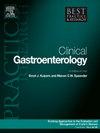急性肝功能衰竭感染的评估、预防和管理。
IF 3.2
3区 医学
Q2 GASTROENTEROLOGY & HEPATOLOGY
Best Practice & Research Clinical Gastroenterology
Pub Date : 2024-12-01
DOI:10.1016/j.bpg.2024.101958
引用次数: 0
摘要
急性肝衰竭(ALF)的感染增加了相关的发病率和死亡率,并经常阻碍移植的可能性。三分之二的ALF感染是细菌感染,三分之一是真菌感染。一旦出现临床恶化,必须高度怀疑感染。多药耐药感染常见于延长ICU住院时间、有创插管、通气和肾脏替代治疗。由于ALF中的大多数感染是院内感染,因此通过ICU的感染控制措施预防感染至关重要。虽然诸如CRP、降钙素原(细菌感染)、1,3- β - d葡聚糖和半乳甘露聚糖(真菌感染)等标志物有助于诊断,但金标准是血培养。呼吸道感染的治疗必须基于BAL或mini-BAL培养。在本文中,我们讨论了ALF常见的感染,早期诊断的方法和推荐的预防,先发制人以及治疗ALF感染的治疗方案。本文章由计算机程序翻译,如有差异,请以英文原文为准。
Infections in acute liver failure – Assessment, prevention, and management
Infections in acute liver failure (ALF) increase the associated morbidity and mortality, and often hamper the possibility of transplantation. Two-thirds of the infections in ALF are bacterial while one-third is fungal. High suspicion for infection is essential whenever there is clinical deterioration. Multi-drug resistant infections are frequently encountered with prolonged ICU stay, invasive lines, ventilation and renal replacement therapy. Since most of the infections in ALF are nosocomial, prevention of infections is crucial by infection control practices in the ICU. Although markers such as CRP, procalcitonin (for bacterial infections), 1,3-beta-D glucan, and galactomannan (fungal infections) aid in the diagnosis, the gold standard is blood culture. Therapy for respiratory infections must be based on BAL or mini-BAL culture. In this article, we discuss the common infections occurring in ALF, methods for early diagnosis and recommended prophylactic, pre-emptive as well as therapeutic options for treating infections in ALF.
求助全文
通过发布文献求助,成功后即可免费获取论文全文。
去求助
来源期刊
CiteScore
5.50
自引率
0.00%
发文量
23
审稿时长
69 days
期刊介绍:
Each topic-based issue of Best Practice & Research Clinical Gastroenterology will provide a comprehensive review of current clinical practice and thinking within the specialty of gastroenterology.

 求助内容:
求助内容: 应助结果提醒方式:
应助结果提醒方式:


